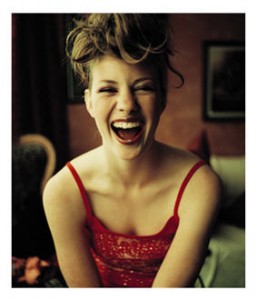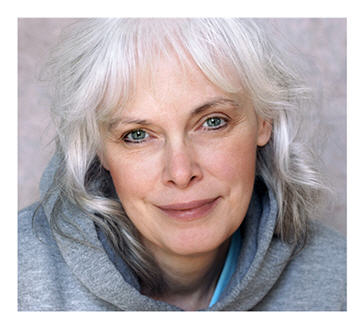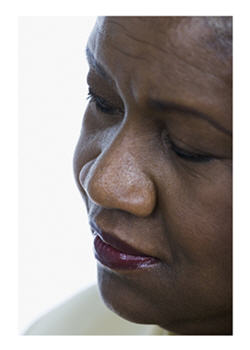The F word? Sure, I’ve got one.
No, not that one. Actually, let’s make it two.
 Let’s use one that’s even more loaded in some circles, and another which some of us live, and others have forgotten.
Let’s use one that’s even more loaded in some circles, and another which some of us live, and others have forgotten.
F for Feminism.
F for Femininity.
Let’s talk about those who don’t understand the breadth of definitions inherent in these terms.
Let’s talk about the assumptions, and the misconceptions.
Let’s talk about the way feminism and femininity needn’t face off but instead, coexist, because they are not mutually exclusive.
Let’s talk about our men – our fine, honorable men – who want us to honor their differences and their choices, in the same way we want them to honor ours.
Feminism
By definition, feminism is about political, social, and economic equality for women. If we leave the definition at that, it’s easy to see that we have far to go.
For some, the Feminist Movement is more than a buzzword or history; it’s our history, because in some small way, we participated in its energy and its activism.
For some of us, the late 1960s and 1970s were an exciting and idealistic time – not about spurning men or our pleasure in being female, but about expanding our options.
We had good reason to want them expanded – lower pay for equal work, and seeing our mothers (and sisters and grandmothers) – some content, and others unhappily slotted into homemaker roles when their hearts were elsewhere and their options few. They were told where they belonged, and they dutifully complied with that piece of the social contract.
And what 18-year old doesn’t want personal freedom? What 22-year old doesn’t want a happier life than a dissatisfied parent, or worse – one who is chained to an empty or destructive marriage for economic reasons? What 30-year old doesn’t want the same career opportunities much less remuneration than the person to her left, who is wearing trousers and wingtips or jeans and work boots, rather than practical pumps?
What single parent of either gender doesn’t want to provide decently for his or her children?
Femininity
I’m not a girly girl; my tastes in many areas skew male. A product of Western culture – a hybrid of American and French – I look people squarely in the eye, I hold their gaze, and I smile easily.
I adore being a woman. I may choose to think like a man when it suits my purpose, but I never wanted to be a man.
I enjoy my emotional complexity. I am happy to be expressive. I give love with generosity, and take pleasure in pleasing. I delight in the interplay of man and woman together; I love the “me” I become when I am in sync with a good man, and I love the “me” I am learning to become as I grow older, and find myself increasingly at ease with myself.
And incidentally, I know men who could make these same statements, though they are less likely to admit to them.
I believe in these good men I describe. I have known them as friends, as colleagues, as lovers. Occasionally, I have been fortunate in knowing a good man as something more – a beloved.
Feminist Men
I believe in the honorable men my sons will become. I see their innate differences from their female friends, and likewise, from me as their mother. They are young men who respect themselves. Young men who respect women.
Should I label them “Feminist Men?” Must we label everyone?
I know adult men who refer to themselves as feminist, feminist-leaning, or avowed supporters of economic fairness. Does this mean they would shoulder equal responsibilities on the domestic front? That’s hard to say – and it’s one of the greatest challenges many women face on a daily basis.
I know men who have watched their mothers, their sisters, their wives, their daughters – notably after divorce with children, widowhood with children, or unemployment or illness – as they struggle to get back on their feet again. These thoughtful men admit that it appears more complicated for women – harder to regroup, particularly when they’re caring for children.
These men are “in it” with us. Without labels – theirs or ours. They see people who need a hand, people for whom our systems provide insufficient structural support.
Women on Women
Yesterday I wrote at length about two women, and their experience of feminism today. I would like to return to Anne-Marie Slaughter for a moment, and more of her words as written in The Atlantic, in “Why Women Still Can’t Have It All.” Referring to her decision to step-down from a high level position in the State Department, to resume her (extremely demanding) role in academia at Princeton, she writes of the response that set off “blind fury,” and with that, her own realizations.
All my life, I’d been on the other side of this exchange. I’d been the woman smiling the faintly superior smile while another woman told me she had decided to take some time out or pursue a less competitive career track so that she could spend more time with her family. I’d been the woman congratulating herself on her unswerving commitment to the feminist cause, chatting smugly with her dwindling number of college or law school friends who had reached and maintained their place on the highest rungs of their profession. I’d been the one telling young women at my lectures that you can have it all and do it all, regardless of what field you are in. Which means I’d been part, albeit unwittingly, of making millions of women feel that they are to blame if they cannot manage to rise up the ladder as fast as men and also have a family and an active home life (and be thin and beautiful to boot).
The beauty of this remarkable paragraph – an admission from an extraordinarily accomplished woman – is not only in its sentiment, but its honesty. Professor Slaughter admits to the all too prevalent tendency in our culture to make assumptions. We place blame, however faintly.
And so we must learn and relearn not to assume, and if possible, to share our discoveries of what it’s like to walk in new shoes.
What Makes a Woman a Woman?
I’ve mused before on what makes a woman tick and for that matter, what makes a man tick – as if we could generalize.
That said, couldn’t we agree that we’re able to identify aspects of self that most women would recognize? Is the importance of emotional attachment part of the picture? What about curiosity and a ferocious intellect? The importance of beauty – however you may describe it? How much is innate, and how much is cultural conditioning?
 In that zone of zeroing in on recognition, I know myself: I possess a woman’s heart for nurturing and a woman’s desire – or possibly a mother’s desire – for peacemaking.
In that zone of zeroing in on recognition, I know myself: I possess a woman’s heart for nurturing and a woman’s desire – or possibly a mother’s desire – for peacemaking.
But this has nothing to do with whether I paint my gray hair in midlife, the height of my heels, who I sleep with (or don’t), much less my ability to be decisive in the workplace as befits a managerial role, or my capacity to speak my mind with conviction.
My creative abilities are specific (and proven), as are my skills on the analytical and interpretive side. My value may be abstracted in certain roles, but money is tangible – and remains the necessary exchange for my valuable contributions in contemporary society.
Let me repeat: Money is tangible – and remains the necessary exchange for my valuable contributions in contemporary society.
Those contributions ought to garner the same monetary compensation as anyone else with equal skills, experience, results, and credentials. Gender should be irrelevant.
If I am feminine, it is in my manner and my temperament. If I am feminine, it is a conscious choice to give steam to those aspects of my persona. If I am feminine, it is at least in part my choice – a choice that makes me comfortable and in which I take pleasure.
It is not unfeminine to expect (and take) equal voice or equal pay.
Another F Word: Fight
I do not understand the increasingly combative nature between men and women. Not all men and women, but more than I care to admit.
There is blaming, there is finger pointing; even writing these words is giving life to the generalization that we – each gender – stereotype the other.
I especially do not understand the fight taking place using the banner of Feminism as if it is a declaration of war, a weapon, a target, a sign of the enemy. I certainly don’t understand pitting feminist principles against a “traditional” (?) view that has little to do with today’s complex and troubled society.
 Some say that we have a complex and troubled society thanks to the feminism that stirred up dissent in the sixties and seventies. I get the reasons for that stance; many women as well as men have suffered some of the consequences. But I also acknowledge that with positive change there are unintended outcomes; among these with regard to Feminism, I would include the Superwoman Myth, which I strongly believe is impossible to live up to.
Some say that we have a complex and troubled society thanks to the feminism that stirred up dissent in the sixties and seventies. I get the reasons for that stance; many women as well as men have suffered some of the consequences. But I also acknowledge that with positive change there are unintended outcomes; among these with regard to Feminism, I would include the Superwoman Myth, which I strongly believe is impossible to live up to.
But Feminism is not a dirty word. Feminism is about expanded opportunity. Feminism does not necessitate a zero-sum game, though God knows in this wretched economy we’re all fighting to survive even as we flail about trying not to sink.
Feminism, as I wrote yesterday, is about economics, respect, real opportunity for real choices, and that yes, that includes women owning their sexuality and their reproductive rights. All of this requires social, political, and economic systems that accommodate all of us, not half of us.
F for the Future
My view of our future is admittedly sullied by my own experiences – by disappointments in our institutions – our political bodies, our legal systems, our health care delivery mechanisms. Naturally, I include our shaky and variable interpretations of marriage and commitment.
Yet I remain an idealist, convinced that if we band together while acknowledging our differences – differences among women, and differences between men and women – the proverbial sum of the parts is indeed greater than the whole.
As for “having the whole?” Men and women both make trade-offs daily. I believe that women make more, with greater (negative) economic impact to themselves and their families, and that must stop.
If men and women cease labeling and start listening, perhaps we could rebuild – and not only a new sort of relationship structure – but social systems in a less judgmental country, one that would practice another F word – Fairness.
If only. If only we could all be viewed as humans, as people, as individuals, no matter our gender, our beliefs or our desires. If only we could be rewarded for our endeavors based on their merit only, with no regard to gender. If only we all had equal opportunity to make our choices, our personal choices, based on what we felt was best for ourselves. I think back often now to my mother, a woman who married a man who was less responsible than he needed to be, because he was the only boy and the baby and “back in that day”, it was up to the woman to take care of the family, to hold things together. I think now that her life most probably was not what she had wanted when she was a young woman. I think now how grateful I am that I was able to escape, with my children, from a bad marriage. It was hard, there was never enough money, but I had that option. Now those options need to be broadened for all people.
All I can say, Carol, is from your lips…
I couldn’t agree more.
It’s like anything else…a minority can give a word a negative connotation. Feminism is one of those words that has suffered at the hands of some of those stereotypes. But for some, Fight is second nature and they aren’t happy unless they’re stirring up altercations and feeding frenzies. I’m with Carol…why can’t we all be rewarded on merit and accomplishment, regardless of gender? I believe your sons will turn out to be wonderful men who have seen, first-hand, how women can combine femininity, independence and feminism into one exceptional package. 🙂
Quite true, Lisa, about the stirring up. (And thank you… )
Yesterday and today’s posts were both very interesting. I am not a fan of labels or stereotypes, but they exist. Labels are often chosen by groups promoting a cause, and so they exist for legitimate reasons. But then they get absorbed in the culture and twisted. Stereotypes and generalizations promote assumptions, and can that ever be a good thing for anybody?
I agree that women’s issues are “human” issues (as you say). Unfortunately, I think there aren’t enough people who truly understand that. I would love to see an ideal world where equality exists for everyone, and where we can be empathetic toward other people’s differences. What affects one part of our society impacts all parts of our society in some way. It is sort of like the butterfly effect or the trickle-down effect. And if you ask me, what effects women has the greatest impact on society because we are raising the next generation – generation after generation.
Fairness? Life isn’t fair, but I’d like it to be. I do love your idealistic optimism!
Butterfly Effect indeed, Robin. Why is it so clear to some, and not to others?
My son and I had a conversation the other day about the young women of his age.
The old adage of being a ‘lady’ or ‘classy’ does not seem to exist in his generation. Excess of alcohol consumption, aggressive behaviour, promiscuity and vulgarity seem to be commonplace.
His comments were interesting when he told us about being insulted after opening a car door for his date (“I can open my own door”) … and yet asked to do the lifting by a female co-worker being paid the same rate for the same job because it was too heavy for her.
Women are trying so damn hard to prove something – to who? Are young women today confused because of the ‘role models’ media exposes them to? At the end of the day we are all human beings and no two situations or conditions are the same. It’s up to us to make our own situation work – and be the woman we want to be. For me – it’s a combination of all of the above … I am a work in progress.
Like you, Vicki Lee, I’m not sure I understand why this is so hard – concepts of equality do not mean “sameness,” and manners are manners regardless of sex.
I wish your son had experienced a better response than his date provided. (You may find this interesting, on chivalry, or this, a conversation, chivalry, teen-style.)
I like the way you view yourself as a work in progress. Would that we could all do so.